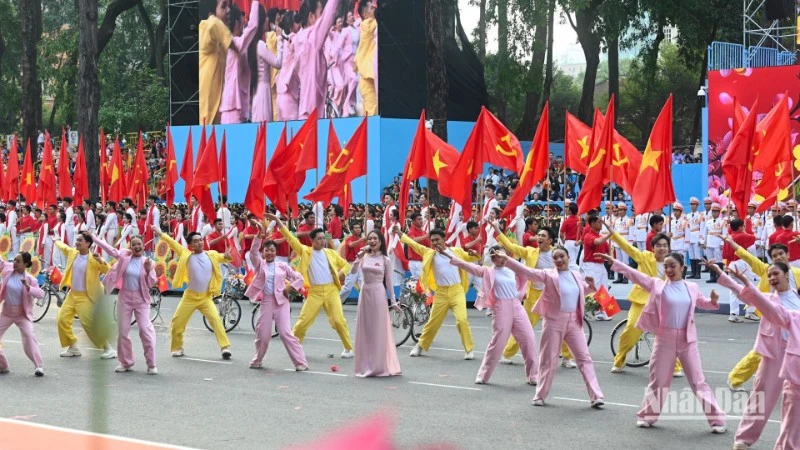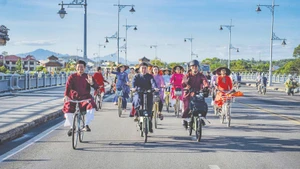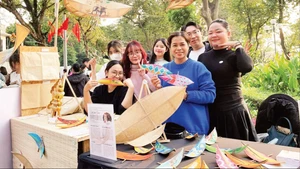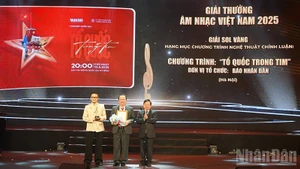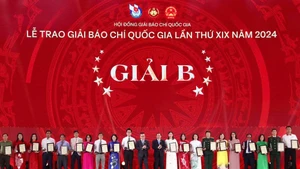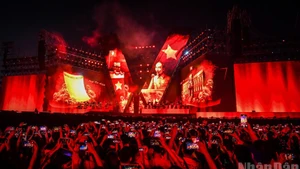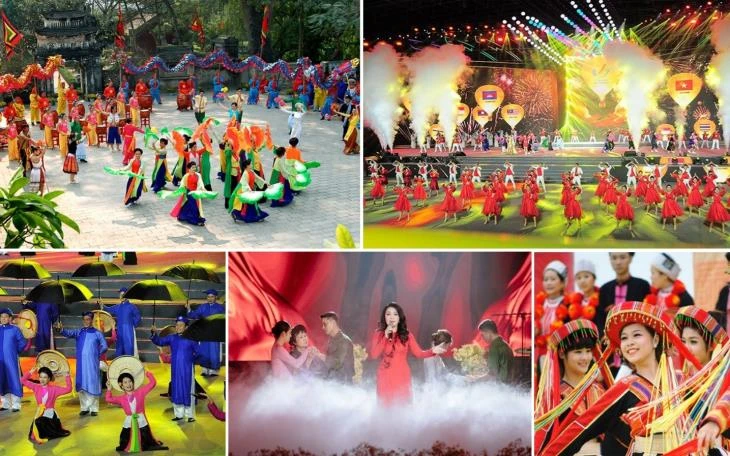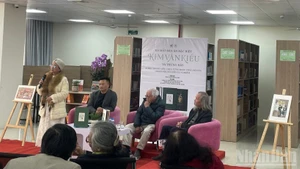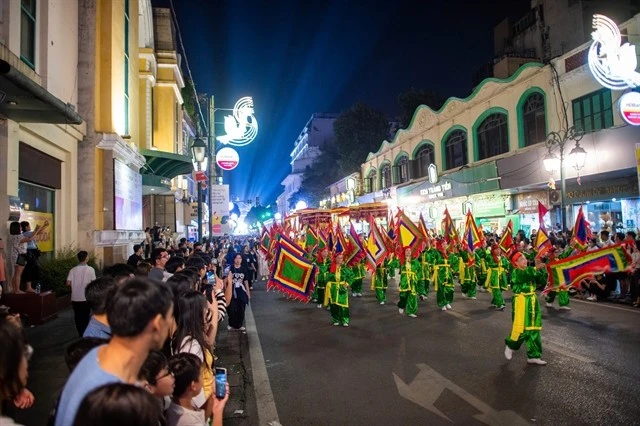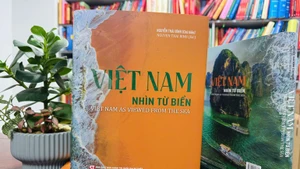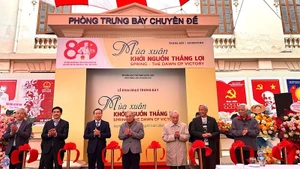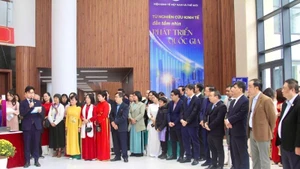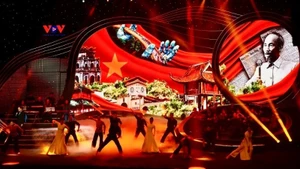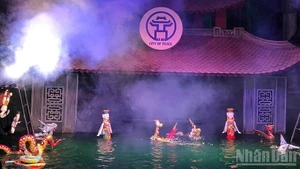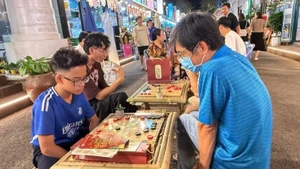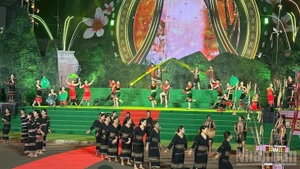All the pieces performed by Phuong My Chi in collaboration with the production team DTAP demonstrate a delicate fusion of traditional culture and modern musical thinking. In “Buon trang”, for instance, Phuong My Chi surprised the audience by reciting famous verses from “Day thon Vi Da” (Han Mac Tu) and performing Vovinam on stage. Meanwhile, in “Rock hat gao”, she impressed the audience with a unique blend of electronic music and folk singing from the Mekong Delta.
The 22-year-old singer left a strong impression by pairing ca tru with rap and electronic music in “Vu tru co anh”. Her emotional performance in “Bong phu hoa” – a song inspired by the literary work “Chuyen nguoi con gai Nam Xuong” – created a “social media sensation” across platforms.
In addition to investing in melodies, lyrics, and choreography, Phuong My Chi also paid close attention to costumes and props. These featured designs rich in Vietnamese cultural elements such as traditional clothes, and motifs like storks and lotus flowers.
This distinct, modest, soulful palette steeped in national spirit created a unique highlight for Phuong My Chi on the international stage, earning admiration even from experts.
This is not only the success of an individual but also proof of a creative generation ready to step into the world and shine through national culture. Alongside Phuong My Chi, many other prominent artists are helping shape the modern music scene rooted in traditional culture, including Hoang Thuy Linh with songs like “De Mi noi cho ma nghe”, “Duyen am”, “Keo ca keo ket”, “Em day chang phai Thuy Kieu”, “Gieo que”, “See tinh” and others; and Hoa Minzy with “Thi Mau” and “Bac Bling” – two hit songs that have made the Kinh Bac singer’s name widely recognised.
These songs have dominated music charts, showing a shift in young audiences’ musical tastes and proving the appeal of musical works that draw from traditional cultural materials. Heritage not only helps people understand their origins but also creates great development opportunities when community connections are effectively leveraged, linking the past, present, and future. When heritage is combined with modern thinking and appropriate storytelling methods, it produces products that are both competitive and capable of leading the market.
When Vietnamese culture can transcend barriers of geography and language to reach international friends, the national brand will be more strongly recognised on the world map, thereby reinforcing love and pride in traditional identity among the Vietnamese people.
According to many experts, this “formula” is not only applicable to music but can also be used in various other fields such as film, fashion, consumer goods, and cuisine, especially in the context of deep international integration, where culture increasingly affirms its role as the “key” to identifying each nation’s unique identity.
However, sustaining long-term creative products inspired by traditional culture is not simple. Understanding is not enough – one must become an inheritor and innovator, transforming past values into strength for the present.
Creators must know how to “tell” and convey cultural stories with a renewed mindset and modern language, along with dedication, responsibility for preserving and promoting Vietnamese culture to the world, technological proficiency, and a fresh, creative perspective.
When Vietnamese culture can transcend barriers of geography and language to reach international friends, the national brand will be more strongly recognised on the world map, thereby reinforcing love and pride in traditional identity among the Vietnamese people.
To promote international cultural integration, the Politburo has assigned the Ministry of Culture, Sports and Tourism to develop a Project on the Internationalisation of Vietnamese Culture and the Vietnamisation of International Culture. The project aims to make culture an internal driving force for rapid and sustainable national development; enhance Viet Nam’s position on the global stage; form high-quality cultural products and brands with global competitiveness, access international markets, and export cultural goods and services abroad.
It is hoped that the implementation of this project, along with open policies and solutions, will establish an ecosystem that fosters creativity and supports the emergence of a new generation of artists producing cultural products that are globally integrated without losing their national roots – modern yet grounded in tradition.
